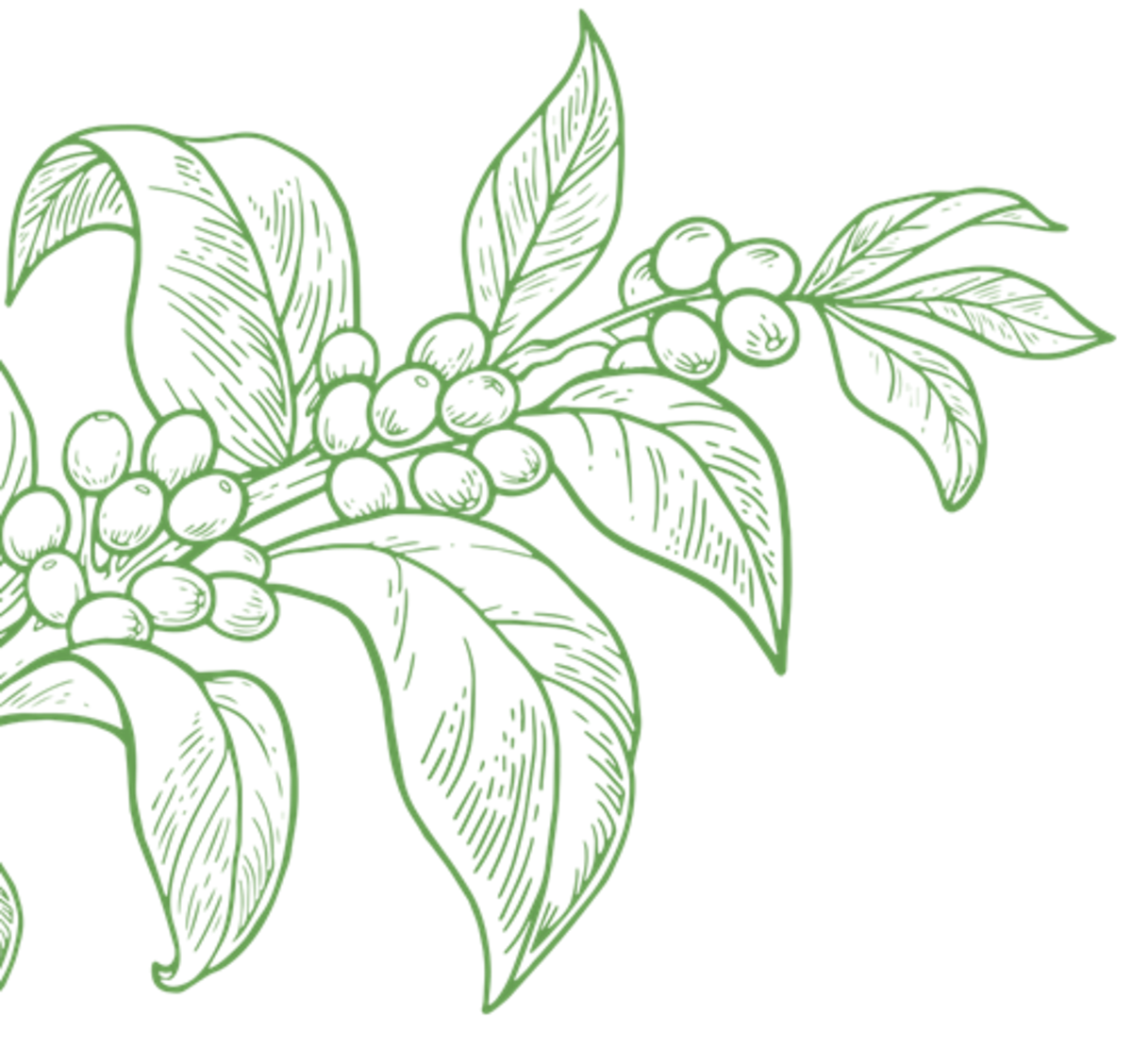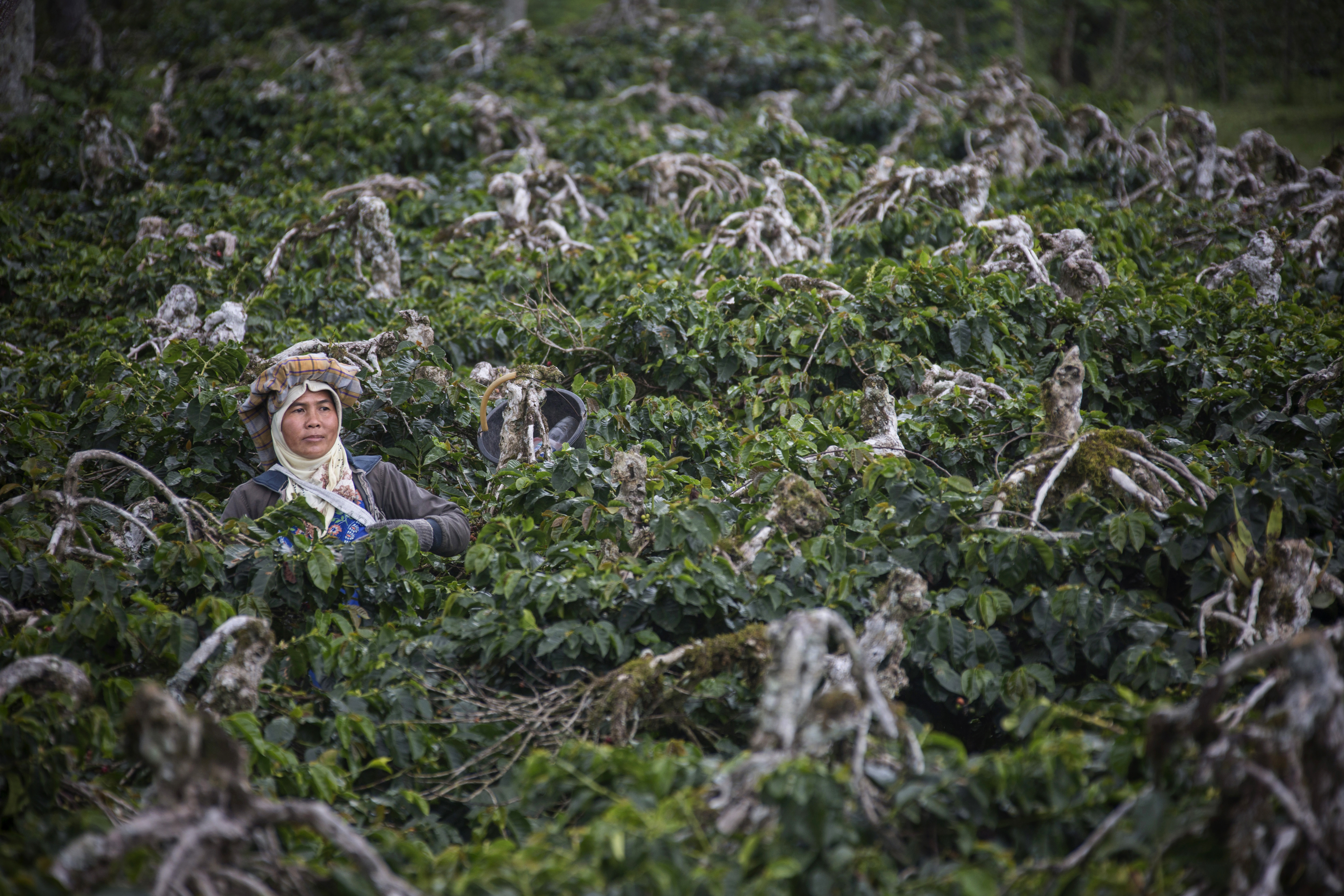
Coffee Cultivation
CO₂e emissions: 61.5%
Since 2014, all coffee from Arvid Nordquist has been certified by Rainforest Alliance or Fairtrade. Our organic range is additionally certified by the EU Organic Leaf and KRAV.
Our Coffee Beans
We have long taken responsibility throughout the entire value chain. Since 2014, we have exclusively purchased 100% certified coffee beans complying with Rainforest Alliance and Fairtrade standards. Our organic range is also certified by the EU Organic Leaf and KRAV. When you choose certified coffee, you can be confident that it has been produced with care for both people and the environment and has been verified by an independent third party. These certifications include protection of human rights, fair incomes for growers, measures against eutrophication, biodiversity conservation, protection of water resources, and healthy soils. Additionally, the certifications prevent child labour and discrimination.
Together, these standards represent a clear mark of quality, demonstrating our responsibility for both the environment and the people behind the coffee.
Water Efficiency and Regenerative Agriculture
Certified coffee farms are required to use water efficiently, treat water for reuse, and reduce their energy consumption. We also support the transition to regenerative farming methods, such as increased use of organic fertilisers, intercropping systems, buffer zones, and agroforestry. These practices lead to reduced chemical use and improved carbon sequestration in soil.
Fair Conditions for Coffee Growers
Coffee is grown in countries often affected by widespread poverty, with many farmers living below the poverty line. Women frequently have less access to land, finance, and education. This places a significant responsibility on us as buyers of green coffee.
We take responsibility across the supply chain and work to improve working conditions in coffee-growing countries. The certifications we use include clear requirements prohibiting child labour, ensuring the right to unionise, safe working conditions, and promoting women’s rights. Beyond certifications, we actively increase transparency and traceability in our supply chain.
We prioritise building long-term relationships with coffee cooperatives and farm owners. Through stable partnerships, economic security is created, enabling farmers to invest in sustainable farming practices and improve working conditions for their employees.

Economic Security for Coffee Farmers
High-quality coffee is in demand. Coffee is traded on commodity markets alongside goods such as oil, gold, and copper. After oil, coffee is the largest commodity traded on these markets. Most coffee is traded relative to the global market price, which is determined by expectations about the harvest and overall market trends. This creates economic uncertainty for farmers, who may sometimes receive less than the cost of production.
Rainforest Alliance supports its farmers by indicating the additional premiums they can charge for coffee grown to the organisation’s standards. Buyers, who must also be members of Rainforest Alliance, agree to pay a higher price for Rainforest Alliance-certified coffee than both the global market price and the price for equivalent quality.
Fairtrade sets a fixed minimum price, guaranteeing farmers a base level of payment regardless of how low the global market price falls. This protects farmers from severe price drops and ensures incomes cover sustainable production costs. If the market price is above the minimum, farmers receive the higher price. The Fairtrade premium is an extra payment above the sales price, directed to a communal fund that farmers manage, usually through their cooperatives. The premium is used to improve farms, invest in local communities, education, environmental projects, or climate adaptation for production. In 2024, we paid over SEK 40 million in Fairtrade premiums.





